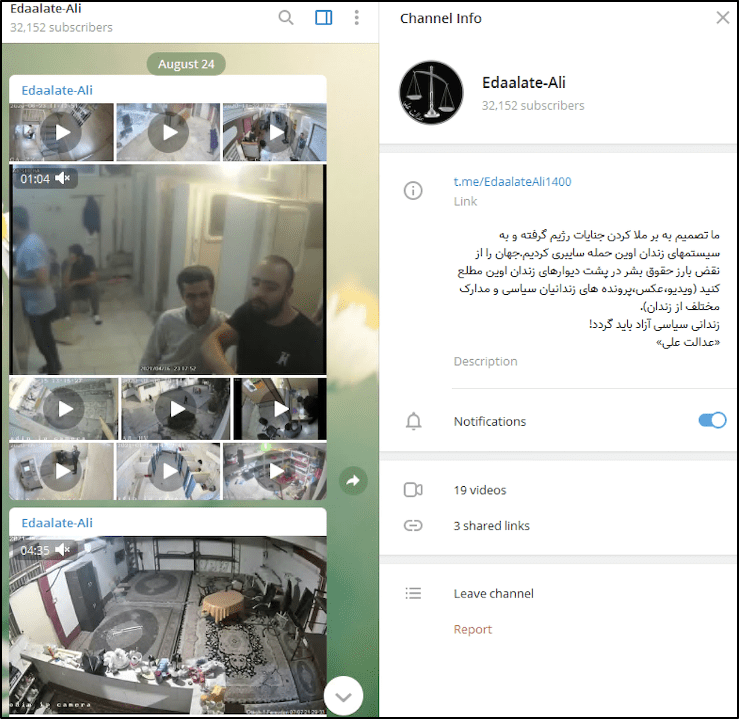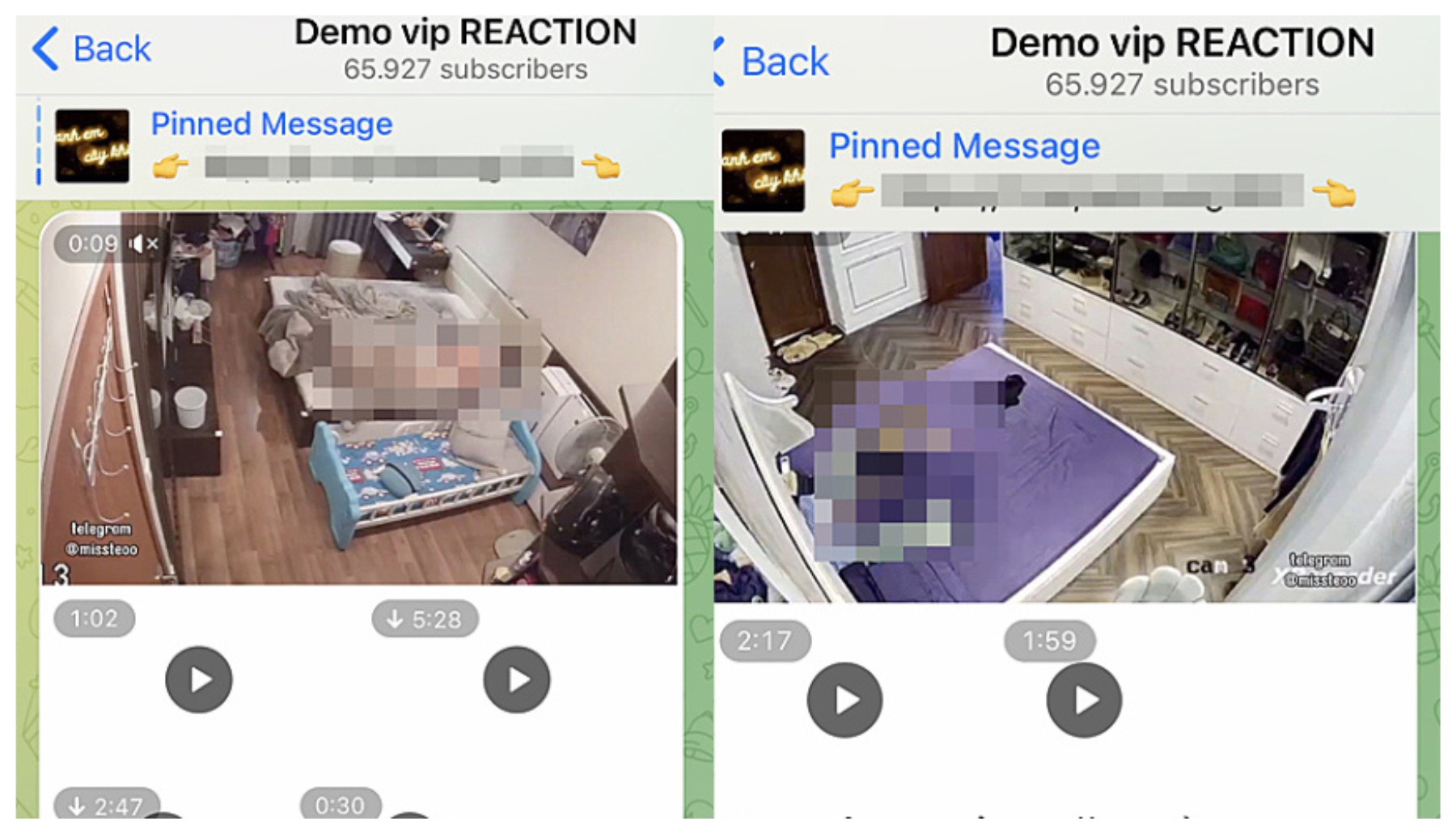Telegram IP Camera Channels: Watch Live & Join Now!
Have you ever wondered about the unseen eyes that might be watching, the digital shadows lurking in the corners of our connected world? The proliferation of easily accessible IP cameras has opened a Pandora's Box, revealing a disturbing trend: the covert capture and distribution of private moments, often without consent or knowledge.
The digital age has brought unprecedented convenience, but it has also blurred the lines between public and private, creating new avenues for exploitation. The availability of inexpensive IP cameras, coupled with the anonymity afforded by platforms like Telegram, has fueled a surge in the surreptitious sharing of images and videos harvested from these devices. This raises serious ethical and legal questions about privacy, consent, and the potential for abuse.
| Aspect | Details |
| Type of Data | Illicitly obtained images and videos from IP cameras. |
| Source | Compromised or unsecured IP cameras in private homes and public spaces. |
| Distribution Platforms | Primarily Telegram channels and groups. |
| Motivations | Voyeurism, exploitation, potential for blackmail, and malicious intent. |
| Legal Ramifications | Significant legal consequences for both those who capture and distribute the content. |
| Ethical Concerns | Violation of privacy, lack of consent, and potential for long-term psychological harm. |
| Reference Website | Electronic Frontier Foundation (EFF) |
Telegram, a popular messaging app known for its encrypted communication and large group capabilities, has become a breeding ground for these illicit activities. Channels dedicated to sharing footage from hacked or unsecured IP cameras are readily accessible, often with thousands of members eager to consume the content. The ease with which these channels can be created and disseminated makes it challenging to monitor and shut them down effectively.
- No Results Check Spelling Query Tips Fry99cc Traffic
- Overtime Megan Leaks The Controversy Explained 2024 Update
One such example is the Telegram channel "@nhomhackcameras," which invites users to "view and join right away." Similar channels, like "@ipcam_ipcamera" and unofficial services operating under the name "@ipcamera_cctv," further illustrate the prevalence of this disturbing trend. The Russian phrases encountered, such as "\u0421\u043a\u0440\u044b\u0442\u044b\u0435 \u043a\u0430\u043c\u0435\u0440\u044b 18+| ip cams" (Hidden cameras 18+ | IP cams) and "\u0432\u0437\u043b\u043e\u043c\u0430\u043d\u043d\u044b\u0435 \u0434\u043e\u043c\u0430\u0448\u043d\u0438\u0435 \u043a\u0430\u043c\u0435\u0440\u044b (hacked home cameras) \u0441\u043a\u0440\u044b\u0442\u044b\u0435 \u043a\u0430\u043c\u0435\u0440\u044b (hiden camera)," underscore the international scope of this problem and the diverse languages in which these channels operate.
The allure of "free qr ip cams" and promises of access to "family 4k server updates" serve as bait, drawing unsuspecting users into these digital dens of voyeurism. The mention of "ip cam mom korean ipcam telegram" hints at the disturbing specificity of some of these channels, catering to niche and often highly problematic interests. The existence of channels dedicated to "hacked home cameras" is particularly alarming, as it suggests a deliberate targeting of private residences and a blatant disregard for personal privacy.
The methods used to discover and access these channels are varied. Some users rely on direct invitations and word-of-mouth, while others utilize Telegram search engines like teleteg.com to explore an "extensive array of groups." These search tools allow users to "precisely target your desired telegram audience," making it easier than ever to find and join channels that cater to specific interests, no matter how perverse or illegal those interests may be.
- Joyce Dewitts Net Worth From Threes Company To Millions
- Sava Schultzs Shocking Betrayal Onlyfans Leaks More
Telegram directories, which list channels, groups, and bots, further facilitate the discovery process. Users can search for channels using names or keywords, and even view detailed analytics and user reviews. This level of organization and accessibility makes it remarkably easy to find and participate in these illicit communities. The promise of "50,000 live streams, vod, series and special channels whatsapp" highlights the sheer volume of content available and the diverse platforms on which it is shared.
The consequences of participating in these channels can be severe. Beyond the ethical implications of voyeurism and the potential for psychological harm to the victims, there are significant legal risks involved. Capturing and distributing images or videos without consent can result in criminal charges, including invasion of privacy, wiretapping, and the distribution of illegal content. Furthermore, individuals who are caught participating in these activities may face civil lawsuits from the victims, seeking compensation for damages such as emotional distress and reputational harm.
Protecting yourself from becoming a victim of IP camera hacking requires a multi-faceted approach. First and foremost, it is crucial to secure your IP cameras with strong, unique passwords. Default passwords are notoriously easy to crack, so it is essential to change them immediately upon installation. Enable two-factor authentication whenever possible, adding an extra layer of security that makes it more difficult for unauthorized individuals to access your devices.
Keep your camera's firmware up to date. Manufacturers regularly release updates to address security vulnerabilities, so it is important to install these updates promptly. Disable features that you do not need, such as remote access if you only use the camera locally. Be wary of suspicious links or attachments, as these can be used to install malware that compromises your device. Regularly review your camera's settings and logs to ensure that there are no unauthorized users or unusual activity.
Beyond technical measures, it is also important to be mindful of where you place your IP cameras. Avoid placing them in sensitive areas such as bedrooms or bathrooms. Consider using privacy shutters or covers when the cameras are not in use. Be aware of your surroundings and avoid inadvertently capturing images or videos of others without their consent. Remember that even seemingly innocuous footage can be misused or exploited if it falls into the wrong hands.
The fight against the illicit sharing of IP camera footage requires a collaborative effort. Law enforcement agencies need to dedicate resources to investigating and prosecuting those who engage in these activities. Social media platforms and messaging apps need to implement stricter policies and enforcement mechanisms to prevent the creation and dissemination of these channels. And individuals need to be vigilant about protecting their privacy and security, both online and offline.
The mention of "Ip cam voyeur (\u043a\u0430\u043c\u0435\u0440\u044b ip) 3777 8000 \ud83d\ude0d\u263a\ufe0f\ud83d\udc4c\ud83d\udc48 \u2014 telegram" further underscores the voyeuristic nature of these activities and the specific technical details that are often shared within these communities. The presence of "744 members, 16 online @quartex3" suggests a thriving online community dedicated to this illicit behavior.
The statement "Here are photos and videos of their relatives, taken secretly" is perhaps the most chilling of all, highlighting the deeply personal and invasive nature of this crime. It underscores the potential for long-term psychological harm to the victims and the urgent need to address this growing problem.
The phrase "Open a channel via telegram app" highlights the ease with which anyone can create and disseminate this type of content. The ability to "Send message via telegram app" further facilitates communication and coordination within these illicit communities.
The mention of "Telegram directory is a directory website for listing telegram channels, groups and bots" emphasizes the role that these directories play in facilitating the discovery of these channels. The ability for "Users can search and find telegram channels and groups using name or keywords, see detailed analytics and user reviews" makes it remarkably easy to find and participate in these activities.
The invitation to "Subscribe to our newsletter for the latest news and updates on telegram directory" suggests a desire to expand the reach and influence of these platforms.
The disclaimer "By clicking or subscribing to the channel, you confirm that you are over 18 years old" is a common tactic used to attempt to shield these channels from legal liability. However, it does not absolve them of responsibility for the content that is shared.
The statements "If you have telegram, you can contact ipcam right away" and "I make a telegram bot capable of reporting its ip address whenever you need it" suggest a willingness to provide technical assistance to those who are interested in participating in these activities.
The phrases "We did not find results for:" and "Check spelling or type a new query" are standard search engine responses, but they highlight the fact that these channels are often intentionally hidden or obscured to avoid detection.
The statement "Reserve channel of public ip cameras \ud83d\udc68\u200d\ud83d\udcbb admin:" suggests a desire to control and monetize access to these channels.
The phrase "Enjoy with more than 50,000 live streams, vod, series and special channels whatsapp:" highlights the vast amount of content that is available and the diverse platforms on which it is shared.
Article Recommendations



Detail Author:
- Name : Marilie McClure PhD
- Username : pfannerstill.jamie
- Email : raymundo62@bruen.com
- Birthdate : 1980-12-24
- Address : 97108 McClure Rest Rudolphberg, DE 43420-6890
- Phone : 812-208-5621
- Company : Gorczany-Daniel
- Job : Auditor
- Bio : Porro quia ut unde voluptatem ut rerum dolorem. Et veritatis iusto in expedita ea et. Debitis aut officia nostrum saepe nulla dolores. Est architecto non ex impedit aperiam voluptas ipsum sequi.
Socials
facebook:
- url : https://facebook.com/thelma.morissette
- username : thelma.morissette
- bio : Deleniti eum tempore impedit cum. Minus est saepe labore molestiae similique.
- followers : 1833
- following : 1155
twitter:
- url : https://twitter.com/thelma_dev
- username : thelma_dev
- bio : Est hic laboriosam molestiae et magni ex. Tempore voluptatem iste deserunt quae neque. Et unde quae eum ex quos minima.
- followers : 3256
- following : 967
tiktok:
- url : https://tiktok.com/@morissette1986
- username : morissette1986
- bio : Iusto fugit assumenda fugiat omnis ducimus reprehenderit architecto.
- followers : 5538
- following : 2994
instagram:
- url : https://instagram.com/tmorissette
- username : tmorissette
- bio : Placeat id sed corporis fuga impedit. Sit vero architecto deserunt praesentium quos necessitatibus.
- followers : 6109
- following : 1552